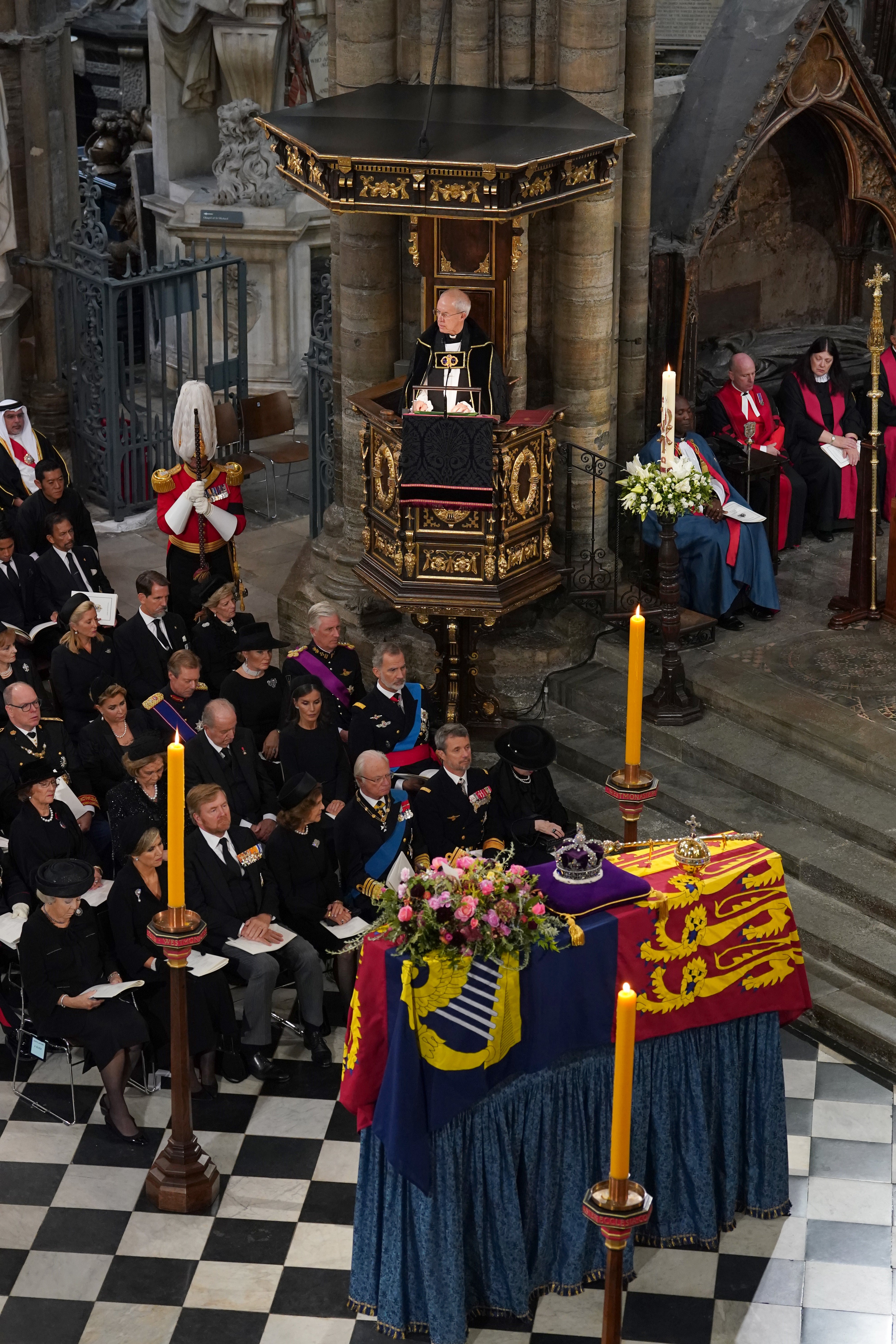Welby contrasts Queen’s ‘loving service’ with leaders who cling to power
The Archbishop of Canterbury made the remarks in his sermon at the Queen’s state funeral.

Your support helps us to tell the story
From reproductive rights to climate change to Big Tech, The Independent is on the ground when the story is developing. Whether it's investigating the financials of Elon Musk's pro-Trump PAC or producing our latest documentary, 'The A Word', which shines a light on the American women fighting for reproductive rights, we know how important it is to parse out the facts from the messaging.
At such a critical moment in US history, we need reporters on the ground. Your donation allows us to keep sending journalists to speak to both sides of the story.
The Independent is trusted by Americans across the entire political spectrum. And unlike many other quality news outlets, we choose not to lock Americans out of our reporting and analysis with paywalls. We believe quality journalism should be available to everyone, paid for by those who can afford it.
Your support makes all the difference.Archbishop of Canterbury Justin Welby has contrasted the outpouring of emotion for the Queen with how leaders who “cling to power and privileges” will be regarded.
In an address to a congregation packed with world statesmen, current British politicians and former prime ministers, the archbishop said “leaders of loving service” would be remembered when others are “long forgotten”.
In all cases those who serve will be loved and remembered when those who cling to power and privileges are long forgotten
The archbishop has had an occasionally frosty relationship with occupants of No 10, particularly Boris Johnson, who was one of the former prime ministers in Westminster Abbey for the Queen’s state funeral.
In his sermon, the archbishop said: “People of loving service are rare in any walk of life. Leaders of loving service are still rarer.
“But in all cases those who serve will be loved and remembered when those who cling to power and privileges are long forgotten.”
Mr Welby clashed with Mr Johnson on issues such as the policy of sending asylum seekers on a one-way trip to Rwanda and his concern about the collapse in standards in public life, illustrated by the partygate scandal.
But the archbishop, who has been in position since 2013, also had an occasionally strained relationship with Theresa May during her tenure in Downing Street, on subjects such as inequality and welfare reform.
He also criticised David Cameron’s government on subjects including the benefits system and austerity measures.